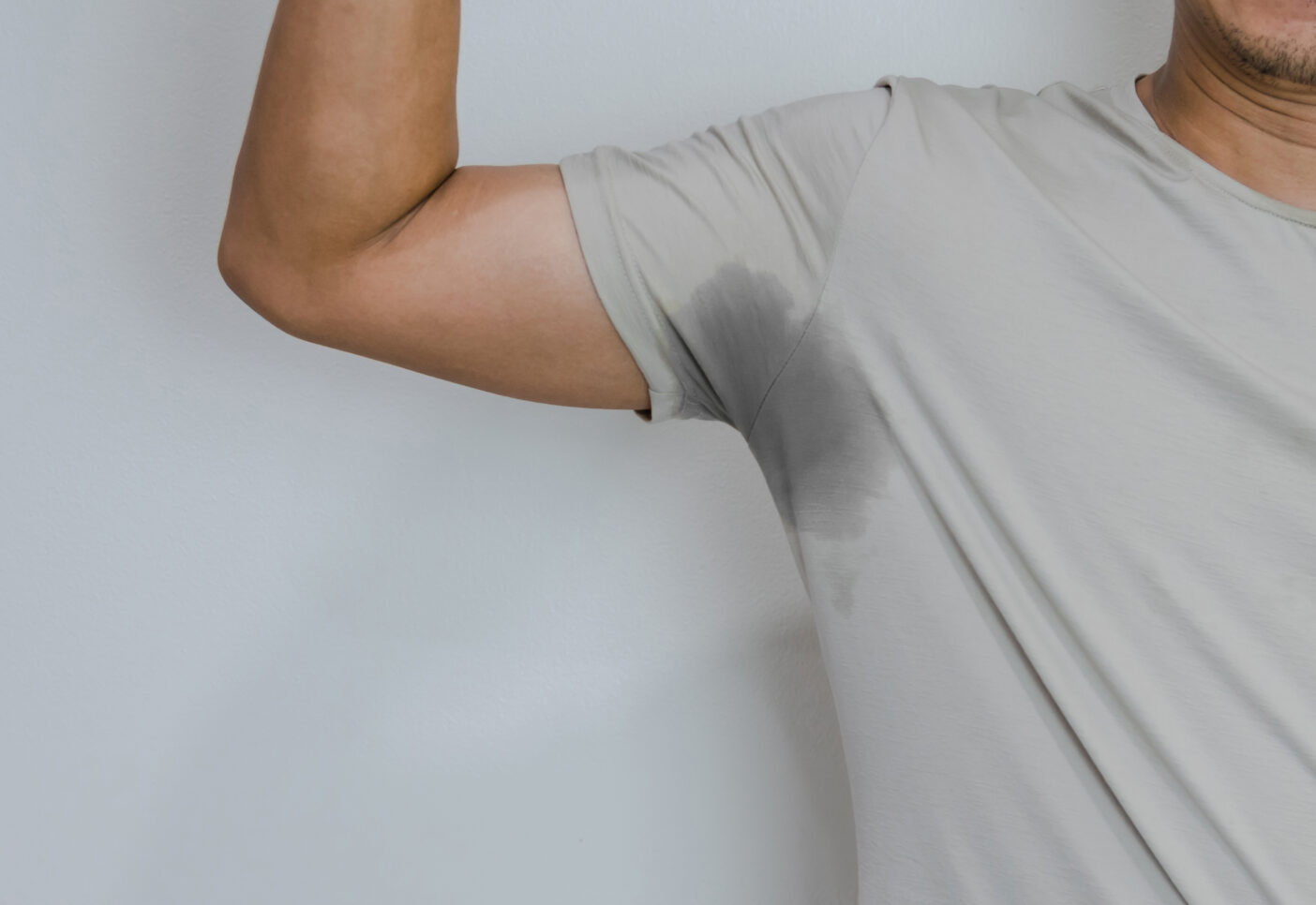Body smell

The influence of sweat and body smell on well-being and the importance of effective deodorants
Sweat and body smell are natural physiological phenomena, but they are often perceived as unpleasant. They play an important role in our everyday lives, as they can affect our self-confidence and social interaction.
Development of body smell
Body smell is caused by the decomposition of sweat by bacteria present on the skin. The human body has two types of sweat glands: eccrine and apocrine. Eccrine sweat is watery and mainly serves the purpose of thermoregulation, while apocrine sweat, which becomes active during puberty, is more fatty and serves as a breeding ground for bacteria that are responsible for the characteristic body smell. The microorganisms on our skin, such as Staphylococcus spp. and Corynebacterium spp., break down the proteins and fatty acids contained in sweat, thereby producing odor molecules such as 3-hydroxy-3-methyl-hexanoic acid (HMHA) and various short-chain fatty acids.
Beneficial active ingredients from our partner Symrise
Our partner Symrise offers advanced solutions for the deodorant industry, including SymDeo® B125 and SymDeo® Next Gen, which are specifically designed to inhibit the activity of malodor-causing bacteria while protecting the skin’s microbiome. These active ingredients are not only effective, but also environmentally friendly and biodegradable, making them particularly attractive for sustainable cosmetic products.
Customer needs and deodorant products
Customers expect a deodorant to not only be effective against sweat odor, but also to be gentle on the skin and provide long-lasting protection. Products labelled as “alcohol-free”, “long-lasting” and “dermatologically tested” are very popular because they offer safety and comfort. The development of products that address these needs, such as SymGuard® CD and SymClariol® for foot and oral care, demonstrates the importance of specialised and effective solutions.
Innovations in deodorant technology
Deodorant technology has evolved significantly, with an emphasis on developing products that not only inhibit body smell but also protect and promote the skin’s natural microbiome. Our partner Symrise’s SymDeo® PMD green and other advanced actives continue these trends by offering innovative approaches to malodor control that are both effective and environmentally friendly.
Here are the physico-chemical characteristics of our partner Symrise’s new actives
SymDeo® B125
INCI: 2-Methyl 5-Cyclohexylpentanol
Appearance: Not specified
Solubility: Not specified
Use level: Effective at 0.3% in deodorant products
Microbial inhibition: Effective against a wide range of bacterial species, including Corynebacterium xerosis and Staphylococcus spp.
SymDeo PMD green
INCI: Propandiol Caprate
Appearance: Liquid, colorless, odorless
Solubility: Completely soluble in water
Use level: 0.5% to 1% for optimal effect
Microbial inhibition: Strong activity against relevant body smell caused by bacteria
SymGuard® CD
INCI: Phenylpropanol, o-Cymen-5-ol, Decylene Glycol
Appearance: Not specified
Solubility: Not specified
Use level: Used in oral care products such as mouthwash at a concentration of 0.3
Microbial inhibition: Effective against oral bacteria including Streptococcus mutans and Fusobacterium nucleatum
SymClariol®
INCI: Decylene Glycol
Appearance: Not specified
Solubility: Not specified
Use level: 0.3% in foot creams
Microbial inhibition: Effective against foot malodor caused by microorganisms including Brevibacterium epidermidis and Trichophyton mentagrophytes
Summary
Our partner Symrise’s advanced solutions for the deodorant industry, such as SymDeo® B125 and SymGuard® CD, not only provide protection against body smell, but also promote healthier skin and a cleaner environment. By using these innovative active ingredients, our partner Symrise can develop effective and appealing products that strengthen the brand image and meet the needs of modern consumers.
In a world where cleanliness and freshness are highly valued, it is crucial to develop deodorants that are both effective and gentle to the skin. If we can help you to implement these new active ingredients in new deodorant products, please do not hesitate to contact us. We will be happy to advise you.
Literature:
Deodorants and antiperspirants: New trends in their active agents and testing methods.
Teerasumran P, Velliou E, Bai S, Cai Q.Int J Cosmet Sci. 2023 Aug;45(4):426-443
The role of fragrance and self-esteem in perception of body odors and impressions of others.
Croijmans I, Beetsma D, Aarts H, Gortemaker I, Smeets M.PLoS One. 2021 Nov 15;16(11):e0258773.